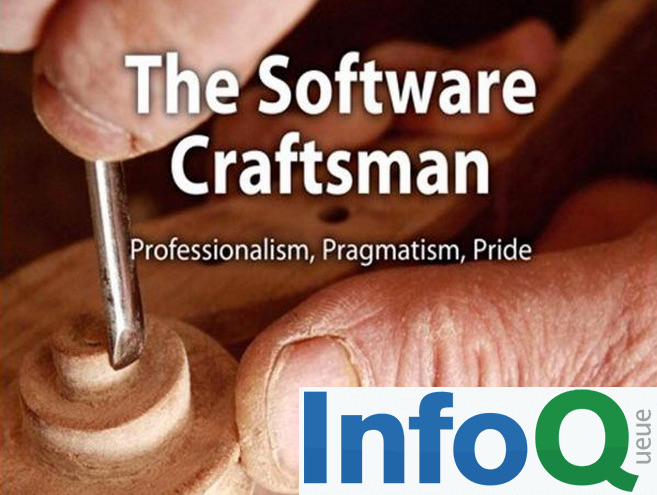
- By Sandro Mancuso
- ·
- Posted 06 May 2015
I want to write a few posts (currently three) about the internal workings of Codurance. I want to show things that make this a great company from an employee’s point of view. Within all three posts you will find a common theme: the founders of Codurance, who were consultants before creating Codurance, believe that their colleagues/employees should be treated as adults and responsible professionals.
But let’s start with a small story from before I joined Codurance. I worked for a while together with a good colleague of mine called Alberto with whom, from time to time, I spoke about the ways that companies should be run. One of them, of which both were quite keen, was the idea that salaries should be public within the company. This has a few benefits: first makes it very difficult to just give a raise for someone just for being a close friend (or sycophant), second it makes far more likely that raises are given based on ability and contribution, third makes is far less likely any kind of discrimination. It doesn’t eliminate all three of them, but the chances of good people leaving is much bigger if they are not taken care of. So if you want your company to retain and hire good people, open salaries are an important factor. There is another thing that makes it important. With closed salaries, you place your trust on people above you. And once you discover that the trust is breached (as it always happens on closed/secret systems), things turn sour. With open salaries you don’t need to place that trust, you can see the actions (as it happens, yes, I prefer OSS ;-) ).
When I started my recruitment process with Codurance I already knew them through the LSCC (London Software Craftsmanship Community). So I was already inclined to meet with them. But then I had the surprise on the phone interview with David Hall in which he mentioned the Open Salaries policy at Codurance. That made my mind up on wanting to be part of this company.
Do you remember a few years back when the Valve Employee Handbook was released (or leaked) to the wild? One of the most interesting concepts on a handbook full of them was that the decision for getting a raise was taken by your peers, people that worked with you, instead of just being left to a manager that could know or not what have you been doing.
At the time I joined Codurance the decision for raises were taken by a fixed group of people (both co-founders, and our two principals). But after a few issues it was decided that a better way was needed. An Initiative Circle (that will be the subject of my next post) was formed and a bunch of Codurance people (disregarding seniority) came together to define the Peer Review system.
And a Peer Review is exactly that. A group of people (usually around 7) that you have worked with (some more senior, some less, some similar), that will decide if you have done enough to get a raise and how much. Even the co-founders can’t change a decision taken. Sometimes a big raise is given, sometimes smaller ones, and sometimes no raise. I think there is a smaller chance of dissatisfaction with the decision when your peers are the ones evaluating your performance.
The process is simple: the person that wants the review selects a sponsor, who then gets 6 other people to participate in the review. One of those 6 people could be directly requested by the person under review. A questionnaire is fulfilled individually and then a group meeting takes place to decide. The decision and explanation is then given by the sponsor to the person under review.
Of course, being a sponsor does take a bit of training. The responsibilities of the sponsor are varied: look for the appropriate people (on a consultancy a bit more difficult than at some other companies), explain the questionnaire and advise on what we evaluate, follow up in getting the questionnaire done, set up the meetings, make sure that the decision taken is fair to the person, collate feedback and provide to the reviewee (we all know that salary talks are always a bit uncomfortable ... or rather, we have been conditioned for them to be).
Another important point for the peer review is that the decision should not be a surprise. Continuous feedback throughout the year is the best way to achieve this. We have a strong culture of craftsmanship and constructive feedback is an important part of it. We are currently in the process of improving how we provide/receive continuous feedback through an Initiative Circle (again, marvellous thing) — we have started to use Impraise to support that along with a new, more relevant, Progress Structure (that will be the subject of the third post).
The combination of these two policies, open salaries and peer review, means that two people with the same impact on the company should be on the same salary ballpark (small discrepancies always will exist because we don’t have a fixed time of the year to take care of reviews). That seems fair to me.
There is one thing left I want to talk around salaries. As a Spaniard, I was greatly surprised when I came to the UK and found that salaries don’t increase automatically yearly with inflation. In Spain is the law (well, it was when I left). Codurance is the only company in the UK that I know of that does it. In January, independently of your personal raises, everyone’s salary is adjusted by inflation. So the typical problem that happens in most companies in which you lose acquisitive power if you don’t get a raise doesn’t happen at Codurance.



Software is our passion.
We are software craftspeople. We build well-crafted software for our clients, we help developers to get better at their craft through training, coaching and mentoring, and we help companies get better at delivering software.